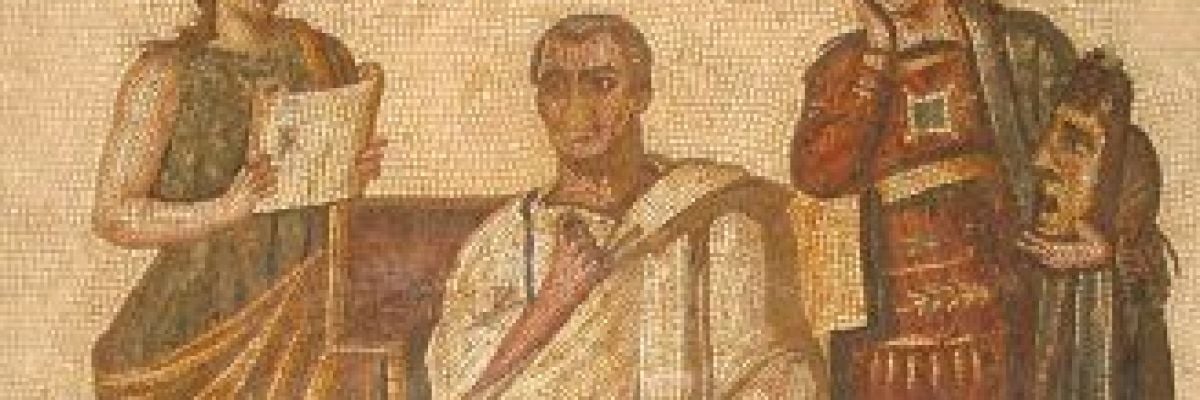
Many things the Holy Father does—probably most—go unnoticed by the majority of Catholics, and I fear His Holiness’s new Twitter account is unlikely to change that for more than a passing instant, so much do our attentions these days flit from one experience to the next. If I still have you reading after one complex compound sentence, you are probably in the minority of blog readers.
Thus, in an effort to underscore something very important that Pope Benedict XVI did last year, I call it again, perhaps, to your attention. Last November, with a motu proprio titled Lingua Latina, the pope established the Pontifical Academy for Latin.
Benedict’s appreciation of the Latin liturgy is one thing that is hard to have missed if only because opponents of his efforts to revive what we now call the Extraordinary Form do not stop their public fretting over a return to the bad old days when, as they argue, Catholics passively knelt at Mass unable fully to participate. Curiously, an expression commonly used by Catholics before the liturgical reform, “assist at Mass,” has long fallen out of use, replaced by “attend Mass.” Which verb suggests greater participation?
The nature of a soul’s conversation with God during the liturgy and the way a particular rite influences that prayer are topics for another post. For now, I’d like to point out that in establishing his Pontifical Council for Latinity, Benedict is not seeking merely to promote wider use of the Extraordinary Form or even intending to restore Latin as the liturgical language already guaranteed “pride of place” by the Second Vatican Council.
The Holy Father wants something more. He wants to make clear that Latin is the language of the Church, and, because Western civilization is emptied of meaning without the Faith, Latin is the language of the West. Citizens of the West should have some command of Latin, or, if they are unwilling to make that effort, they should at least understand that Latin is the common language with which the culture of the Christian West was spread. “It is the language capable of universally transmitting the Gospel,” wrote the Holy Father.
It is the language for, as the pope says, “education and the transmission of knowledge.” Education, wrote G. K. Chesterton, is the soul of a society passing from one generation to the next. Latin is this conduit. It is the language that binds us to the poetry of Virgil, the rhetoric of Cicero, the thought of Augustine, and, indeed, to the political organization of the Roman world.
It is also the language that binds us, through St. Thomas, to the philosophy of Aristotle. As the Holy Father made clear at Regensburg, Western civilization rests on Greek imagination and Roman organization, both irrevocably transformed in Christ at the Incarnation. There is no West without Latin.
Decrying the “decline of humanistic studies” and “the danger of an ever more superficial knowledge of the Latin language,” the Holy Father concludes, “It thus appears urgent to support the effort toward a better knowledge and more competent use of the Latin language as much in the ecclesial ambit as in the wider world of culture.”
The pope calls for “education of young generations in the knowledge of Latin,” including through the use of modern means of communication.” (With this post I’m helping in that respect!)
There are many more ways to help the Holy Father with this important work. Contact the education offices of your diocese and the principals of your Catholic schools and share with them a copy of the motu proprio. Be charitable and firm, and say it with a smile. When my wife, Jacqueline, was told by the principal of our Catholic high school that he let the Latin teacher go because kids didn’t sign up for his class, she responded, “Our boys didn’t like to eat broccoli, but we made them.”
A final suggestion—and not from me, from the pope: In his motu proprio, Benedict calls for the promotion of Latin “as a written and spoken language” through, in addition to other means, “competitions.” Wouldn’t a Latin competition at your children’s school or one among home-schooling families be a wonderful Year of Faith exercise? It could include memorizing and reciting famous Latin aphorisms. Here’s mine: Nemo dat quod no habet.
The Holy Father understands that no one gives what he does not have. If you want to pass along the patrimony of the West to your children, spend some time with the language on which it was built.



